BANK OF ALBANIA
PRESS RELEASE
Governor Sejko attends IMF and WB Spring Meetings 2022 in Washington DC
Publication date: 23.04.2022
On 21-24 April 2022, Governor of the Bank of Albania, Mr Gent Sejko, attended the Spring Meetings of the International Monetary Fund (IMF) and the World Bank Group (WBG) in Washington D.C., USA.
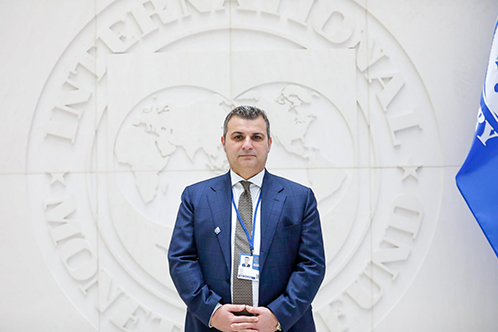
Each year, the Spring Meetings bring together central bank governors, ministers of finance of member states and senior officials of international financial institutions.
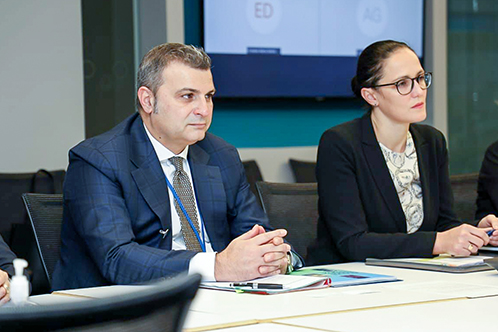
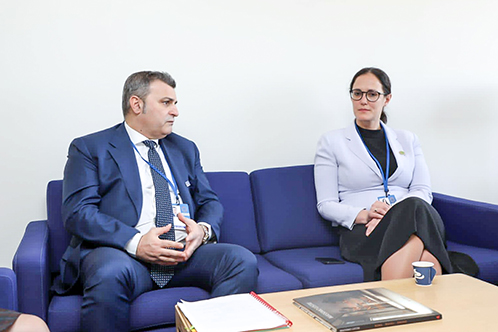
Albania was represented in the Spring Meetings 2022 by a joint delegation of the Bank of Albania - represented by Governor Gent Sejko, the First Deputy Governor, Ms Luljeta Minxhozi and other BoA senior officials; the Ministry of Finance and Economy - represented by the Minister of Finance and Economy, Ms Delina Ibrahimi, Deputy Minister, Ms Adela Xhemali, and other MoF officials.
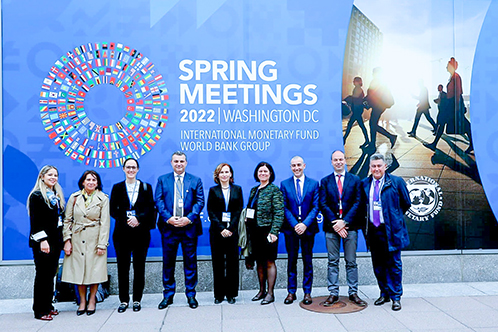
In its Communiqué, the IMF's International Monetary and Financial Committee stated that: “The recovery of the global economy continues but has slowed down owing to new Covid-19 variants and is now facing a major setback from the war against Ukraine and its ramifications, which will amplify existing challenges. The resulting surge in energy and food prices has added to inflationary pressures, while supply disruptions have further intensified, and financial markets and capital flows are exhibiting increased volatility. Against the background of unprecedented uncertainties, rising interest rates, and record high global debt, the spillovers through commodity markets, trade, and financial channels could exacerbate existing vulnerabilities. Potential risks of debt distress, together with refugee flows, increased food insecurity, and inequality could add to social pressures. At the same time, climate change, together with other shared challenges—such as energy security, affordability, and sustainability—are becoming more pressing and require urgent attention.”
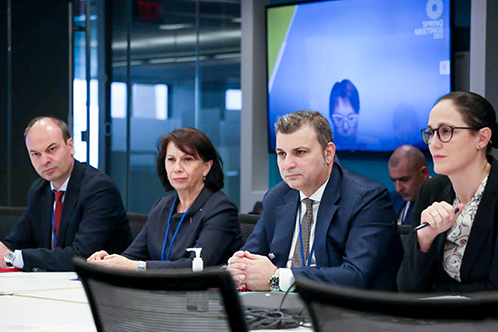
During the IMF-WBG Spring Meetings, Governor Sejko had several important meetings with prominent personalities of international finance. Amongst others, from the IMF: Mr Domenico Fanizza, Executive Director for Albania; Mr Alfred Kammer, Director of the European Department at the IMF; Ms Yan Sun, IMF Mission Chief for Albania; Mr Udaibir Das, Adviser and Assistant at the Monetary and Capital Markets Department. From the World Bank Group: Mr Anna Bjerde, Vice President for Europe and Central Asia; Mr Matteo Bugamelli, Executive Director for Albania at the WB; Mr Mario Guadamillas, Practice Manager for Europe and the Region; Mr Ary Naïm, Country Director for South-eastern Europe at the International Financial Corporation (IFC); Mr Sarvesh Suri, Director at the Multilateral Investment Guarantee Agency (MIGA).
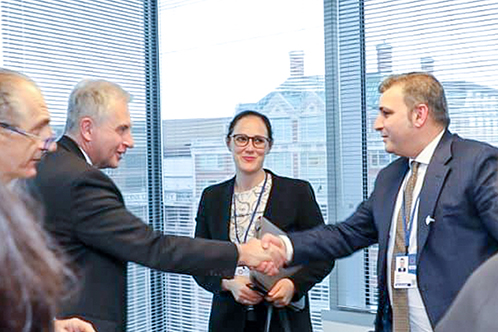
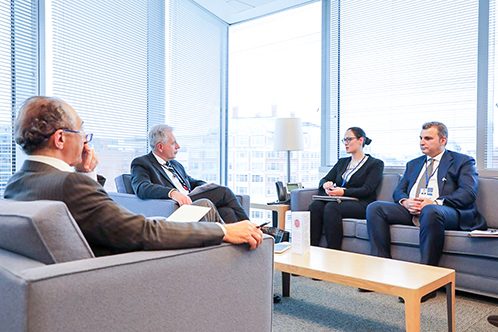
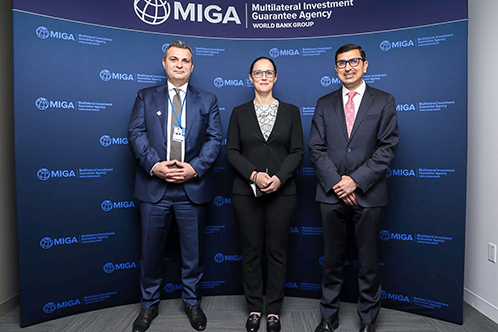
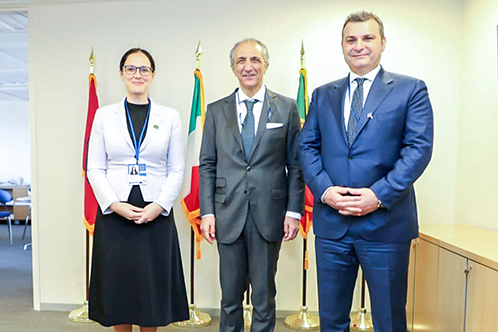
During these meetings, Governor Sejko informed the interlocutors on the latest developments in the Albanian economy.
First, the Governor said that the past two years have been unprecedented and challenging to the Albanian economy, as it faced the 2019 earthquake, the 2020 pandemic and its lingering consequences, and the 2022 military attack of Russia against Ukraine with its hiking price crisis at an international level.
Regarding the developments in the banking sector in Albania, Governor Sejko underlined that it appears stable against the pandemic shocks and effects of the past two years, and its activity continues to expand mainly supported by deposits, while its profit has improved and liquidity remains high. Thanks to the plan for reducing non-performing loans and the commitment of the Bank of Albania, the non-performing loans ratio recorded the lowest level in 15 years, at 5%.
Next, Governor Sejko emphasized that while faced with higher prices in foods, raw material and commodities, the monetary policy was adapted in order to establishing the necessary monetary conditions to meet the inflation target of the Bank of Albania aimed at safeguarding the financial stability and the sustainable and long-term economic growth.
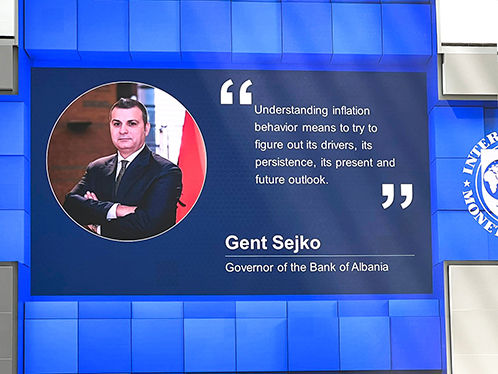
He added that inflation in Albania is expected to remain above the Bank of Albania's target in 2022, reflecting the shocks caused by the price upsurge in international markets. However, this shock will have temporary effects. In this context, Governor Sejko underscored that the upswing in prices in global markets and the reduction of foreign demand, will be accompanied by high inflation rates and slower economic growth compared with the preliminary assessments of the Bank of Albania.
Another important topic was the impact of the De-euroization policy undertaken by the Bank of Albania, with a view to stimulate the use of national currency in the banking sector and financial system.
This policy created more favourable conditions for a better monetary policy transmission, reducing the risks to financial stability and fiscal policy, despite the high scale of euroization in the Albanian economy.
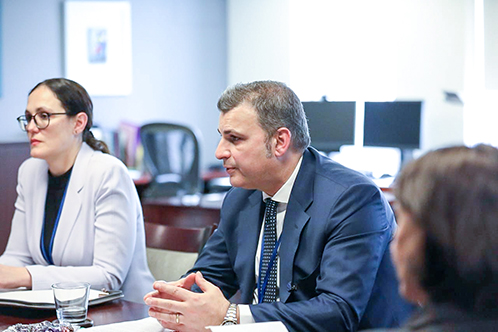
Related to banking supervision, Governor Sejko stated that the Bank of Albania will continue: to improve its supervisory role; the proactive approach on banking regulation; to strengthen the security of the banking system; to promote digitalisation of systems; as well as the improvement of payment systems, in line with international standards.
The Governor affirmed that the institution he leads successfully overcame the challenges of the past years and fulfilled its legal obligations.
Representatives of the IMF and WBG commended the positive role and the policy implemented by the Bank of Albania, which has contributed to the macroeconomic development and financial stability of Albania. They encouraged the Bank of Albania to continue to monitor the situation, as well as coordinate the policies of Albanian authorities by undertaking the necessary measures in timely manner.
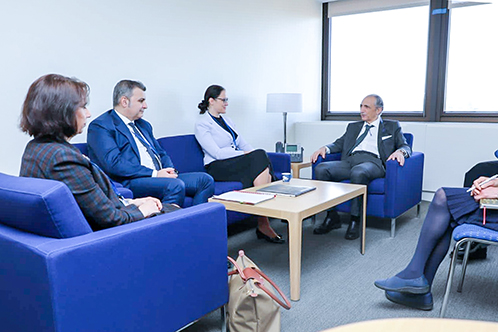
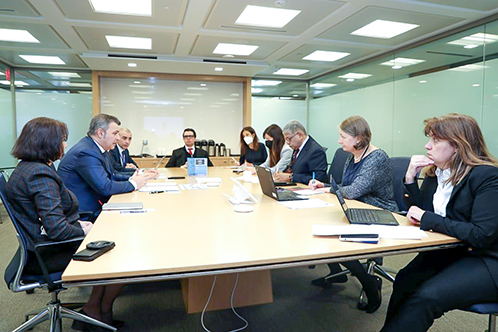
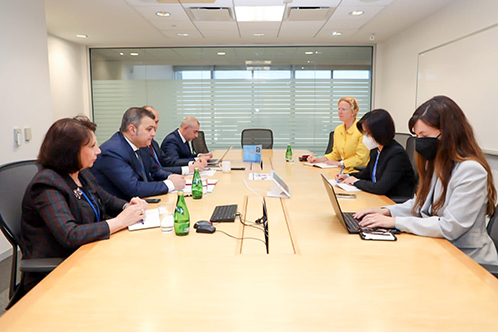
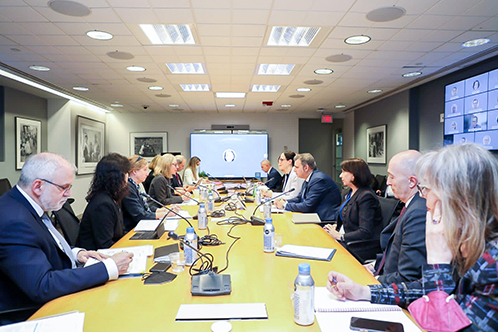
More specifically, the IMF representatives supported the decision of the Bank of Albania to review the monetary policy stance. In parallel, they pointed out the need to continuously monitor inflationary pressures and, if necessary, the succeeding reaction of the monetary policy in order to guarantee the price stability objective. Based on their opinion, Albania has shown a success story in dealing with crises, and the country has experienced positive and important transformations over the years.
In the framework of the current crisis, the international officials emphasized that the coordination between the fiscal and monetary policy is necessary to mitigate the economic and financial consequences from the war in Ukraine and the continuous effects of the pandemic.
During the meetings, they also encouraged the opening of negotiations for the membership of Albanian in the European Union, as a key factor to accelerate the reforms and development of the country.
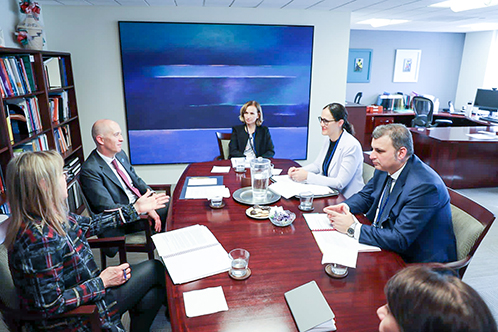
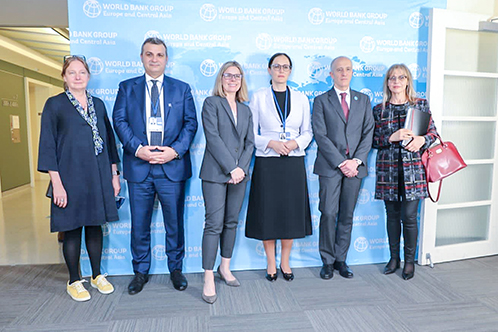
Governor Sejko thanked the representatives of the IMF and the WB for their technical assistance provided to the Bank of Albania, mainly in the field of resolution, payment system, statistics, banking supervision, and financial inclusion.
Concluding, the interlocutors concurred to continue the undertaken projects and the necessary technical assistance to successfully finalise them, and extend the relationships through new projects.

Also, Governor Sejko participated in a closed-door meeting with the Ministers of Finances and Central Banks Governors in the Central, South and Southeaster Europe (CSSEE) countries to discuss about the prospective and challenges of politics in Europe. This is a difficult time for Europe due to crises and policy-making is becoming more complex.
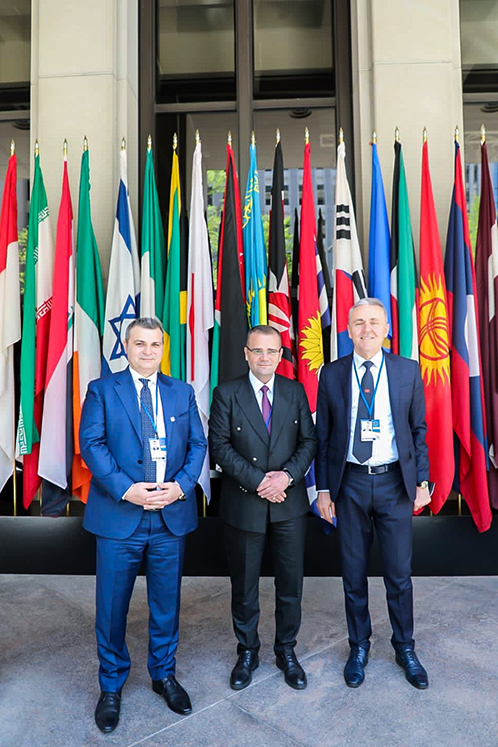
In the framework of these Meetings, Governor Sejko also participated in the plenary session of the IMF's International Monetary and Financial Committee.

 Twitter
Twitter
 Youtube
Youtube
 Facebook
Facebook
 Flickr
Flickr
 RSS
RSS
 Subscribe
Subscribe
 Feedback
Feedback